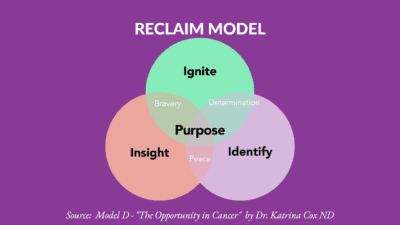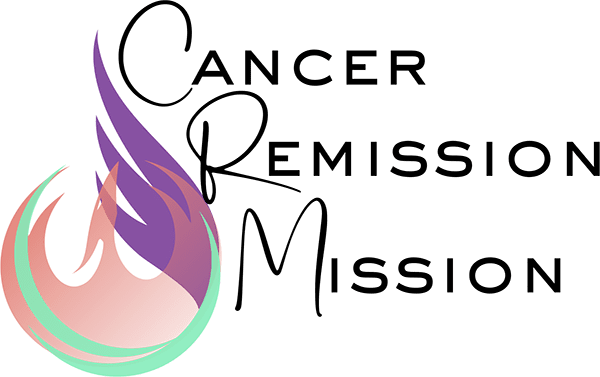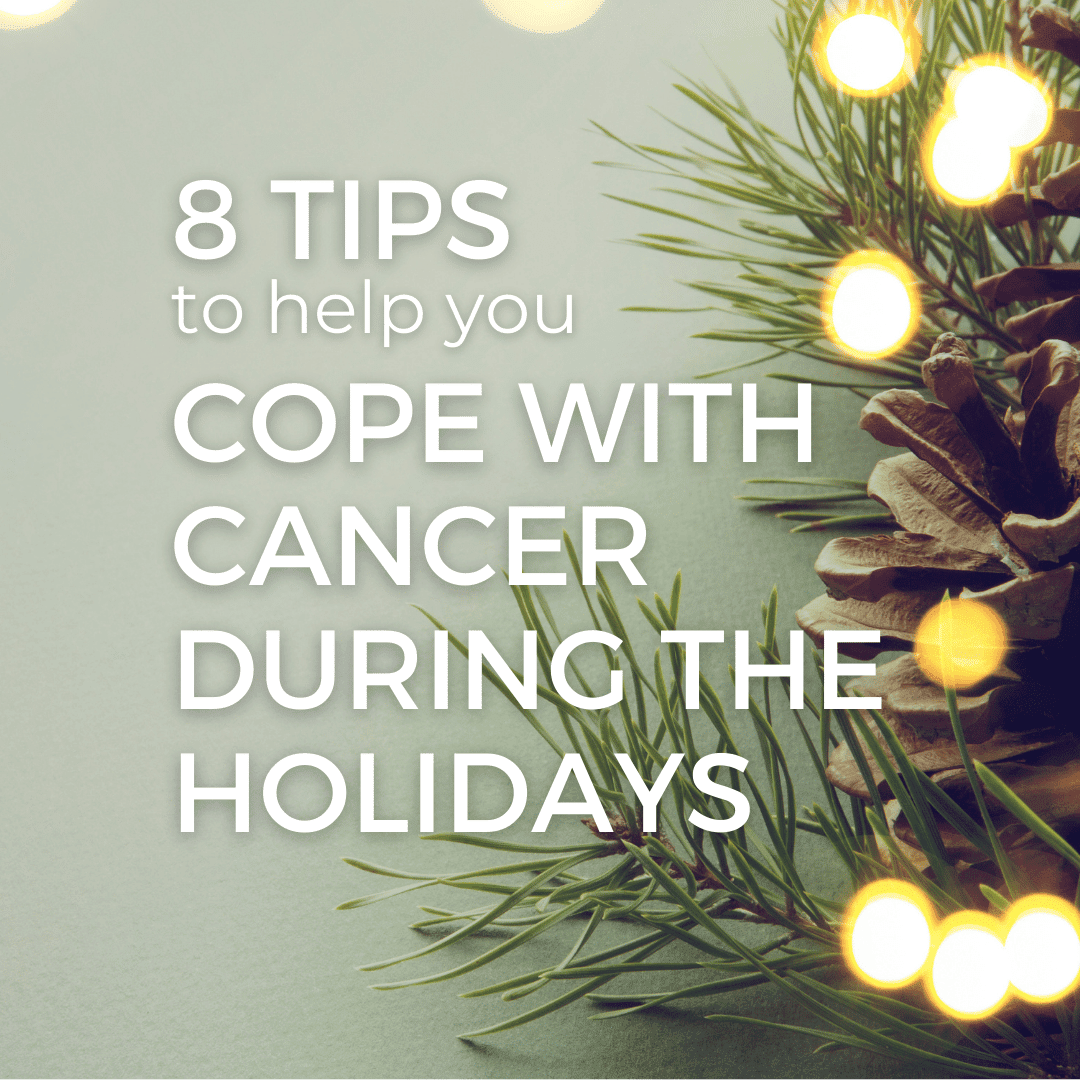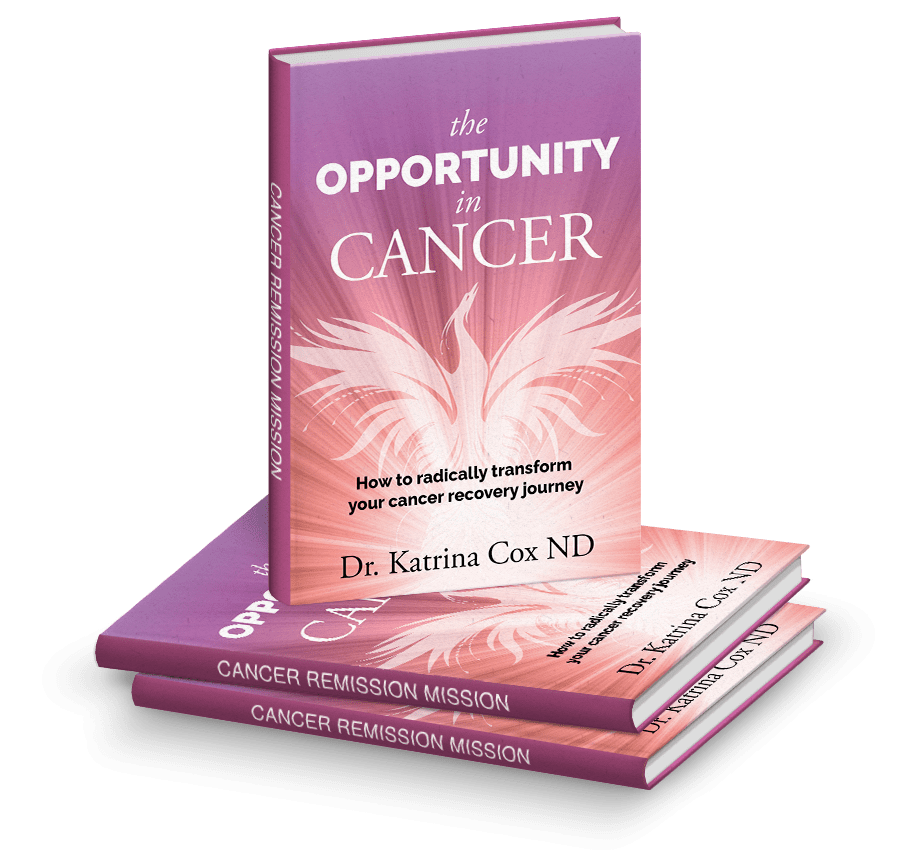We don’t have control over the future, but we have control over our choices, our actions and how we react to our experiences. This is especially true when it comes to the possibility of cancer recurrence.
The thoughts and feelings that people experience in cancer remission can be complex. There was likely a time in the past, perhaps after the diagnosis of cancer or during treatment, when all you wished for was the relief that would come with being in remission.
Although remission is a huge milestone… it doesn’t always bring a complete sense of relief for cancer patients.
One of the biggest worries cancer survivors have is about cancer recurrence. Cancer recurrence is when cancer returns after treatment or after you’ve been given the “all clear”. Cancer recurrence, like the initial diagnosis, is highly unpredictable. Though cancer survivors may go years without any sign of disease, they report the thought of recurrence is always with them. Many experience a heightened sense of vigilance about what is coming next, worrying that every ache or pain is a sign of their cancer recurring. This catastrophic thinking can get in our way and limit our quality of life.
To add even more complexity, some don’t feel comfortable openly sharing these feelings with family members and friends, because they feel like their concerns won’t be understood. Some cancer survivors feel guilty for not feeling more positive about cancer remission, and simply keep it to themselves.
First and foremost, I want you to know that everything you are feeling is valid. The cancer experience is not easy, no matter what stage you are at on your journey. In fact, research has shown that cancer survivors who experience more somatic symptoms (pain, fatigue, etc.) tended to also report higher levels of stress, primarily related to the fear of recurrence. Our bodies are reflecting back to us how much fear we are holding onto when it comes to cancer developing again.
However, in order to truly thrive again, we need to talk about ways of releasing that fear. Holding on to that fear is a roadblock to moving forward fully. Fear traps us in our past, and stops us from finding peace in our future.
So what do we do for our mindset, and how do we make choices to live our lives outside of that fear? We focus on finding purpose.
One of the biggest worries cancer survivors have is about cancer recurrence. Cancer recurrence is when cancer returns after treatment or after you’ve been given the “all clear”. Cancer recurrence, like the initial diagnosis, is highly unpredictable. Though cancer survivors may go years without any sign of disease, they report the thought of recurrence is always with them. Many experience a heightened sense of vigilance about what is coming next, worrying that every ache or pain is a sign of their cancer recurring. This catastrophic thinking can get in our way and limit our quality of life.
To add even more complexity, some don’t feel comfortable openly sharing these feelings with family members and friends, because they feel like their concerns won’t be understood. Some cancer survivors feel guilty for not feeling more positive about cancer remission, and simply keep it to themselves.
First and foremost, I want you to know that everything you are feeling is valid. The cancer experience is not easy, no matter what stage you are at on your journey. In fact, research has shown that cancer survivors who experience more somatic symptoms (pain, fatigue, etc.) tended to also report higher levels of stress, primarily related to the fear of recurrence. Our bodies are reflecting back to us how much fear we are holding onto when it comes to cancer developing again.
However, in order to truly thrive again, we need to talk about ways of releasing that fear. Holding on to that fear is a roadblock to moving forward fully. Fear traps us in our past, and stops us from finding peace in our future.
So what do we do for our mindset, and how do we make choices to live our lives outside of that fear? We focus on finding purpose.
Samantha’s Story
I recently met Samantha, a 40-year-old cancer survivor. Her cancer was caught early (Stage 1 or 2), but in her cancer care follow-up, it was discovered that she had genes that put her at very high risk of recurrence. She had one child already, and they told her in order to mitigate the genes of future recurrence, she had to have a radical, total hysterectomy. At the age of 40, she was thrown into chemical menopause, and she had to take a look at her life. Not only was she faced with having control over her reproduction taken away from her, she also was filled with worry about recurrence. She referred to this as a “constant fear-based state”.
Samantha and I had a conversation about her fears. Much of our discussion centered around how to stay present. In one of our meetings, I remember she said to me, “I know what you mean, and I know I just don’t know how to get there.” Sometimes we know what we need, but navigating the path to get there is unclear.
I talked to Samantha about defining her purpose in life. Cancer gives us the opportunity to take a look at the things that give our life meaning. It gives us the chance to look at what we’ve done before, decide what we want to bring forward into our future, and what we want to leave behind. The reality is that most of us get caught up in the busy-ness of our everyday lives, focusing on what we “should do” and forgetting about what brings us the most joy and meaning. The opportunity in cancer arises when we realize we can choose how we focus our attention. It becomes the opportunity to redefine ourselves and how we spend our time. This is what happened for Samantha. She redirected her attention away from her fear, and focused it on being present instead.

This is more than just having a positive attitude. To create this thriver state, we must understand our purpose and stay present daily.
Finding our purpose can feel like a big task, but it allows us to experience each day with a clear sense of meaning and direction. It can help us feel in control. It allows us to redefine our past experiences and how they impacted our lives. It allows us to see more clearly what are we here to do in our lifetime, so that we spend our time each day with more intention
To help guide you in finding your purpose I have developed a 3 step framework to use. This framework includes: Identifying your peace, gaining insight into your bravery, and igniting your determination.
Finding your Inner Peace
What is it that makes you happy? Your answer will be truly unique to you. Maybe it’s playing with your dog, or hanging out with your kids. Maybe it is spending quality time with your partner. Maybe it is alone time.
Take some time to sit with this question and journal your answers. If you are struggling with figuring out what makes you most happy, try identifying what you don’t enjoy, then paint a mental picture of what the opposite experience would look like.
Once you have identified a few core things that bring you inner peace and happiness, look for ways to make them part of your everyday life. Whether it be for 5 minutes or for hours, spending time focusing on these things will help to stay present.
Knowing Makes You Brave
Think of this like being a trapeze artist knowing there is a net down below. The net is what makes you brave enough to swing from great heights knowing you might fall.
Some might call this a feeling of being grounded, centered or rooted in themselves. For some people, braveness comes from knowing they have a partner to lean on. For others, it can be more abstract, like being outside in nature. For me, I have found this sense of bravery comes from being in the water. When I am swimming, bathing or wading my feet in a lake, I find it easier to tune into myself and listen to my inner knowing.
Finding Clarity and Determination
The last step in finding purpose is to ignite your determination. Determination is about finding clarity and perhaps creating a sense of certainty on your path. How do we find certainty when cancer recurrence is so unpredictable? The goal is not finding certainty in knowing the future, but instead certainty in the things we can do in our every day to support ourselves.
Your determination will be individual. Sometimes it will be found in a clear cancer remission treatment plan. Sometimes it will be found by tapping into that inner knowing.
For example, there are things that we can do physically to give us an idea of our body’s status. In chapter 8 of my book, The Opportunity in Cancer, I touch on things like monitoring our CRP levels and our ESR levels (internal inflammatory markers), to know when there has been a change in health status. Having this regular monitoring done doesn’t stop recurrence. However, it gives you the confidence and clarity that you know as much as you can.
Your determination in this situation is having the information you need to make decisions about your health. You cannot change the results of the tests, but you can decide whether or not you have the tests done. That is in your control.
Experiencing anxiety or fear of cancer recurrence is an emotional roller coaster that can take a toll on your mental health. But there are steps you can take to control those feelings and gain back a sense of sovereignty in your life. These steps I have just shared are some strategic things to keep in mind when dealing with the fear of cancer recurrence.
“Incredible change happens in your life when you decide to take control of what you do have power over instead of craving control over what you don’t.”
~Steve Maraboli
Fear of the future can be released when we feel in control of the present.
If you found this information helpful, I encourage you to also check out my book, The Opportunity in Cancer, which goes into more detail about shifting your mindset after cancer remission. Click here to get your copy.




